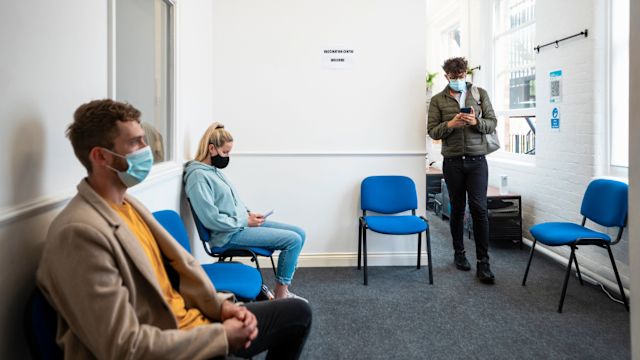Updated on March 17, 2025
Primary immunodeficiency (PI) refers to hundreds of rare genetic disorders that interfere with the immune system's ability to function. These disorders limit the body's ability to defend itself against infections and other diseases, and a person with PI will often experience recurring, difficult-to-treat, and/or uncommon infections. PI can also put a person at a higher risk for certain cancers and other health problems.
These conditions occur due to genetic variations (also called genetic mutations) that affect the production of proteins and cells the immune system needs to function normally. Different types of genetic mutations result in different types of PI. Some are inherited, while others occur sporadically.
PI affects people of all ages. Many people living with PI will have been managing the condition since childhood. Many others will have been diagnosed as adults—they may have only had mild signs and symptoms that were not detected at a younger age. One example is common variable immunodeficiency (CVID), where most cases are diagnosed between the ages of 20 to 40 years.
Treatment for PI
PI will affect different people in different ways, and treatment will be individualized, or adjusted to meet the specific needs of the person being treated.
For example, immunoglobulin replacement therapy is a standard treatment for managing PI for people of all ages. This therapy involves regular infusions of a solution containing a high concentration of immunoglobulins, or antibodies. These are proteins that help the body fight infection and are an essential part of the body's immune defenses.
Immunoglobulin infusions can be delivered in one of two ways—intravenously (IVIg), with a needle inserted into a vein, or subcutaneously (SCIg), with a needle inserted into a layer of fatty tissue under the skin.
IVIg must be administered by a healthcare provider, usually in a healthcare provider's office or a hospital. SCIg can be self-administered at home, or administered by a caregiver, after training from a healthcare provider. Different people have different preferences about administration, with some preferring IVIg and some preferring SCIg. A person may also respond differently to different infusion types, dosing sizes, and infusion schedules.
While immunoglobulin replacement therapy is a mainstay of treatment, other parts of a treatment plan can include medications to treat or prevent infections and precautions to prevent infections. A hematopoietic stem cell transplantation (HSCT) is a potential cure for PI, but it can only be used in some cases—it requires a matched donor, also requires chemotherapy, and involves a long recovery process. Gene therapy is a new and emerging treatment for certain types of PI, and this may be something that you discuss with a healthcare provider.
Considerations for adults with PI
PI is considered a lifelong condition, and treatment needs can change over time. An important part of managing PI as an adult is checking in with what you need from treatment. Here are some things to consider:
- Workplace accommodations. You may need to discuss adjustments with your employers. For example, attending events with a large number of people may put you at risk for an infection. Or you may need accommodations to adhere to your treatment schedule for immunoglobulin replacement therapy.
- Insurance and financial planning. People living with chronic conditions like PI will have higher healthcare costs, and it's important to understand your insurance coverage for the parts of treatment that you need.
- Complications and coexisting conditions. A person diagnosed with PI as an adult may have complications from years of recurrent infections (such as organ damage). A person may also have other health conditions that are related or not related to having PI.
- Reproductive decisions. Genetic counseling can be an important part of care, as many types of PI can be passed on to biological children. It's also important to discuss how PI and treatment for PI can affect pregnancy.
- Mental health support. Mental health is an important topic to discuss with your healthcare providers. Many people with PI experience anxiety, depression, and other difficulties with mental health. In general, chronic conditions can cause a person significant distress in day-to-day life and many people with chronic conditions can benefit from working with mental health professionals.
- Travel considerations. Traveling safely with PI requires additional planning, such as arranging for treatments while away from home.
- Aging with PI. The immune system tends to work less well as a person reaches older age. Older adults with PI must adapt to these changes as well as the challenges of living with PI as an older adult.
Your best source of information about managing PI and staying healthy as you age will be your healthcare team. Establishing a good working relationship with a healthcare provider is essential to successful treatment of PI at any age.






